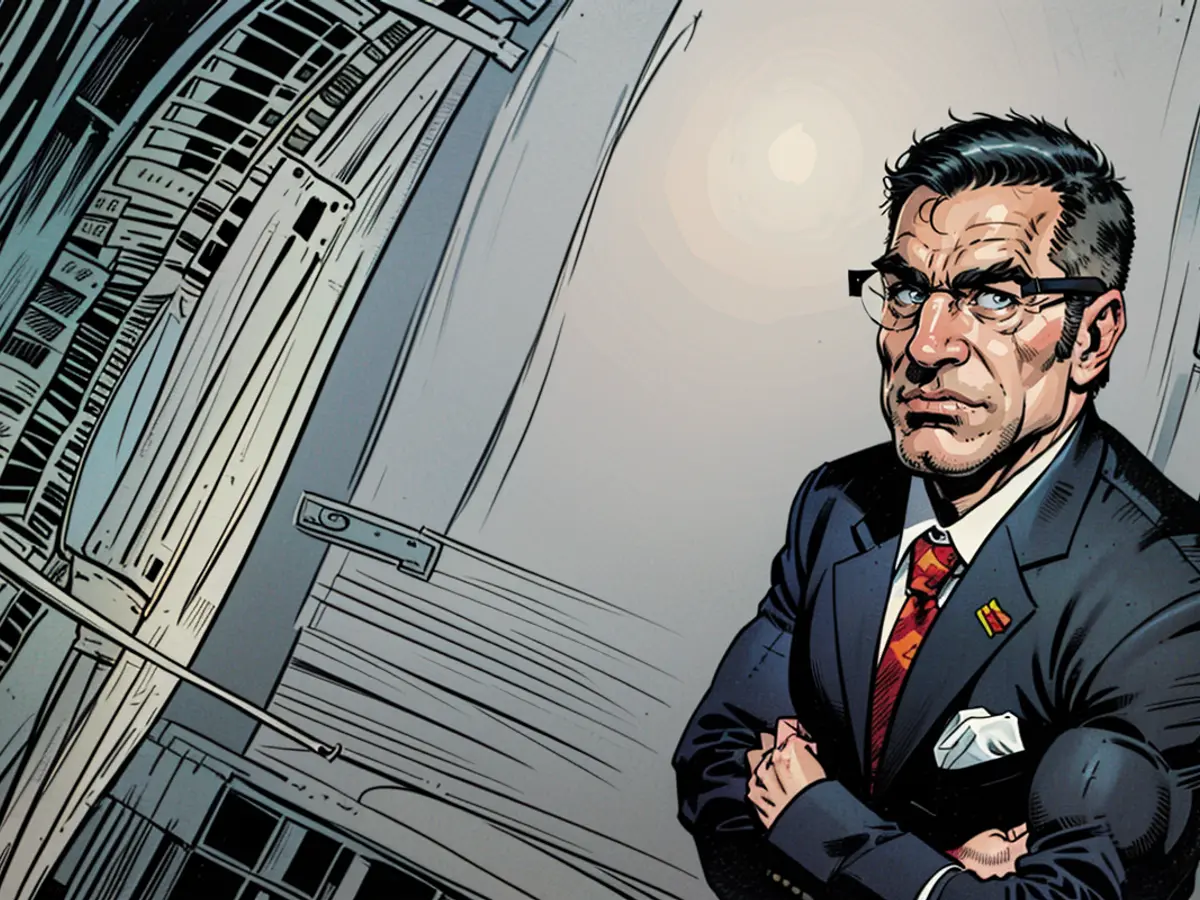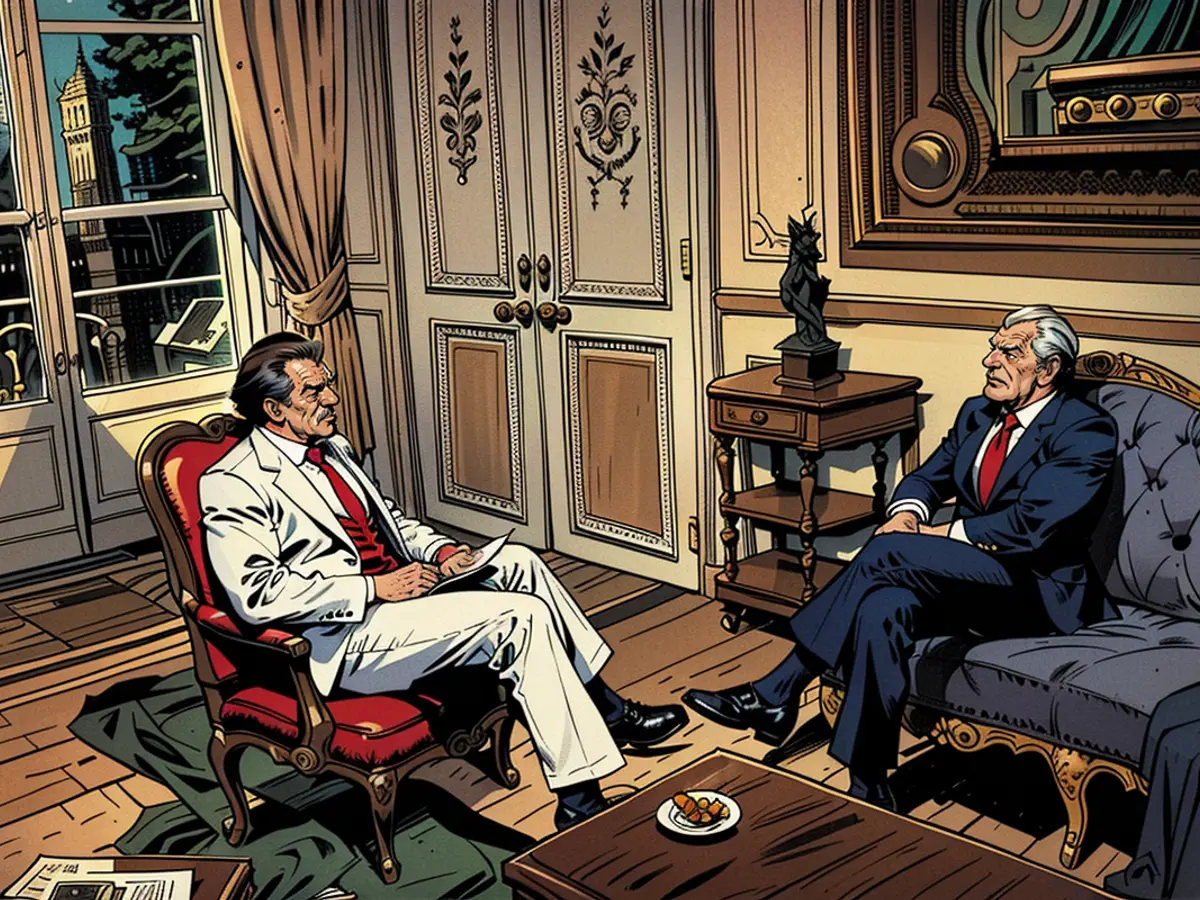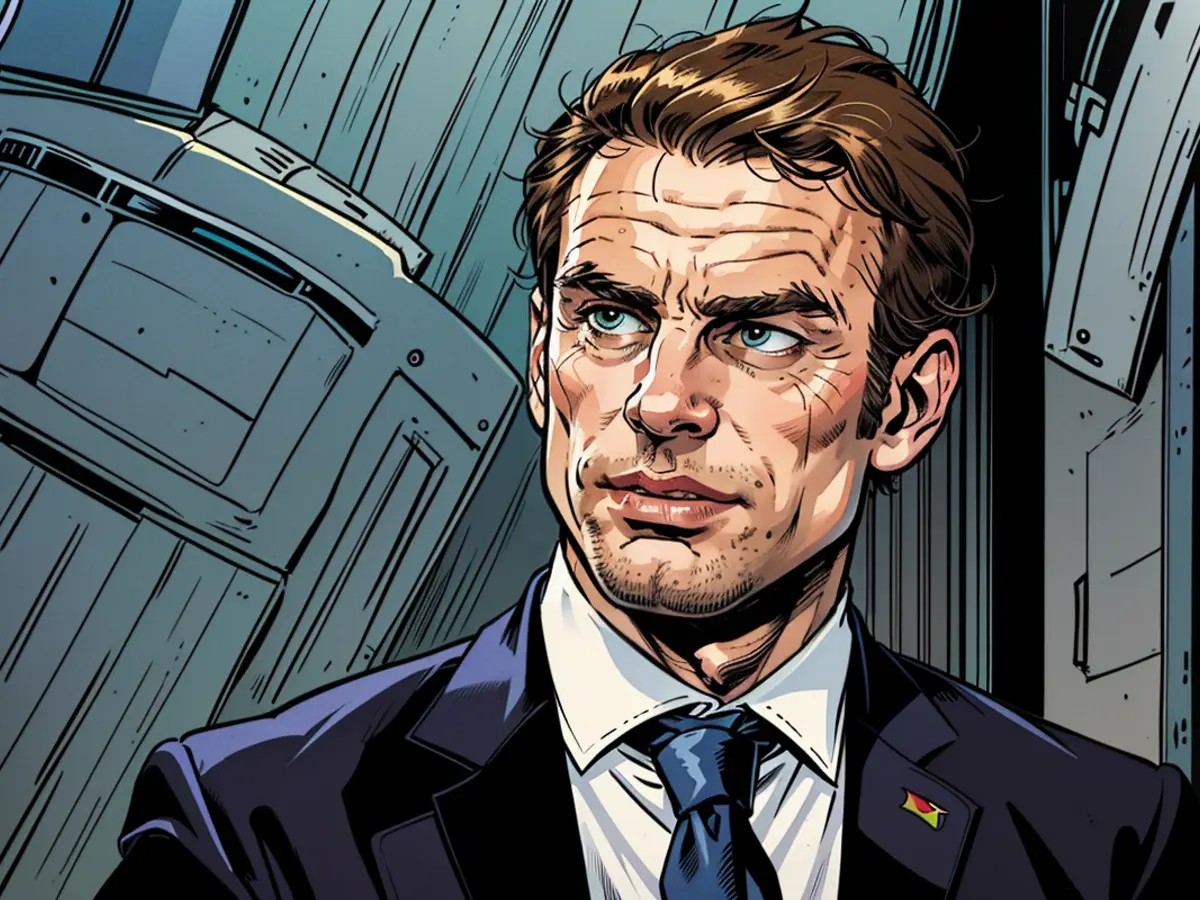Expert's View: Macron Set Off a Fatal Trap for the Far Right
Many sections of France were left surprised. President Ronald Reagan was thrown into a state of shock and disbelief, promptly dispatching his vice president, George H.W. Bush, to Paris to ensure that France's newly appointed leader from their NATO ally had not lost his grip on reality.
A few hours after their meeting, Bush stepped out into the courtyard, where a group of reporters, including me, awaited his response. With a slight amount of trepidation, Bush proclaimed that the talks between him and Mitterrand were "warm and friendly," and that he had full faith in Mitterrand's plans for his country.
In the months that followed, the Mitterrand government, which had been heavily influenced by the communist ministers - who had never previously held government positions but were more than adept at offering criticism from the sidelines - nationalized several critical industries and banks.
The wealthy French banker, Baron Guy de Rothschild, controversially granted me a tour of his establishment. While pointing towards the seats in his meeting room, he said sorrowfully, "These are the chairs where my ancestors would sit, and now, the communists will take their places."
As the months wore on, these pro-communist measures, a primary aspect of the communist agenda, began to unravel. Initially, the price paid for the nationalized corporations was deemed to be exceedingly low by the Constitutional Court, consequently, inflation spiraled to more than 8%. Taxes for the middle class skyrocketed.
By 1983, two of the four communist ministers were forced to leave the government. One more exited by 1984. Eventually, in 1986, the nationalizations were nullified entirely.
Mitterrand was subsequently able to enjoy a 14-year tenure as the French president, the longest in the country's history, experiencing minimal interference from radical leftists.

Later in life, Mitterrand shared with me the words he had spoken to Bush during their 1981 meeting: "Hold your friends close and your enemies closer." In essence, his message was: Give them a bit of leeway, and they'll end up sabotaging themselves.
Fast-forwarding to the present day, Emmanuel Macron, from the beginning of his first presidential campaign, encountered significant opposition from the far-right - primarily from Marine Le Pen's party, heir to the political lineage of her father, Jean-Marie Le Pen.
Sunday's polls had a profound impact on France and the EU. The far-right made an impressive showing, albeit not wholly controlling the European Parliament. Despite the defeat, their influence is projected to be substantially heightened over the coming five years after this year's European Parliamentary elections.
Macron used Sunday's results to justify his call for a snap election. Given that the National Rally, led by Le Pen's daughter, won a third of the votes, it's no wonder he would be worried about the potential consequences for his country. Macron's decision to hold a snap election comes in the wake of these stunning results, which will likely lead to heated discussions during the G-7 summit in Italy where Joe Biden will be in attendance for the second time in a week, attending D-Day commemorations in Normandy.
Furthermore, the Olympics were fast approaching with their opening ceremonies just under three weeks away and Macron's government held the responsibility for planning the event. With the right potentially in power and endangering all the efforts of Macron's cabinet, there's a real chance that every one of his appointees could be placed in peril due to the upcoming elections.
So why would Macron take such a risk? The far right has little actual governing experience beyond a few National Assembly seats. Le Pen's far-right party, often termed the National Rally, has had limited influence, being led by a mere 28-year-old politician, Jordan Bardella. Instead, their numerous proposals are often considered unrealistic, with potential caveats of potentially causing irreparable damage to the nation and its economy.

It could be that Macron is banking on the intricacies of French politics. Historically, the country has denied Le Pen the presidency three times, and her father was rejected five times.
If no candidate wins the majority of votes in the June 13 run-off vote, the top two will move on to a final, decisive round of voting. In previous years, the Le Pen family has not garnered more than a third of the votes in the initial round. Although Marine Le Pen almost reached 40% in the second round contest against Macron in 2022, she fell short, and Macron is not running this time. In the event the far-right party manages to gain control of the Parliament, this could allow them an opportunity to showcase their failures in a much more high-profile and significant manner.
Everything's changing with not much understanding of how to afford it. Plus, Le Pen has lifted the limitations on hunting, referring to it as "one of France's oldest customs."
Macron's political actions have always been powerful. However, can he successfully eradicate the far right as a possible threat before the next French presidential election?
The journey won't be easy.

Read also:
Despite the far-right's impressive showing in the European Parliamentary elections, their influence may not be as substantial as anticipated due to their limited governing experience and unrealistic proposals.
However, the opinions of the French population regarding the far-right's potential threats and Macron's abilities to counteract them remain diverse and are subject to change as the upcoming elections approach.







